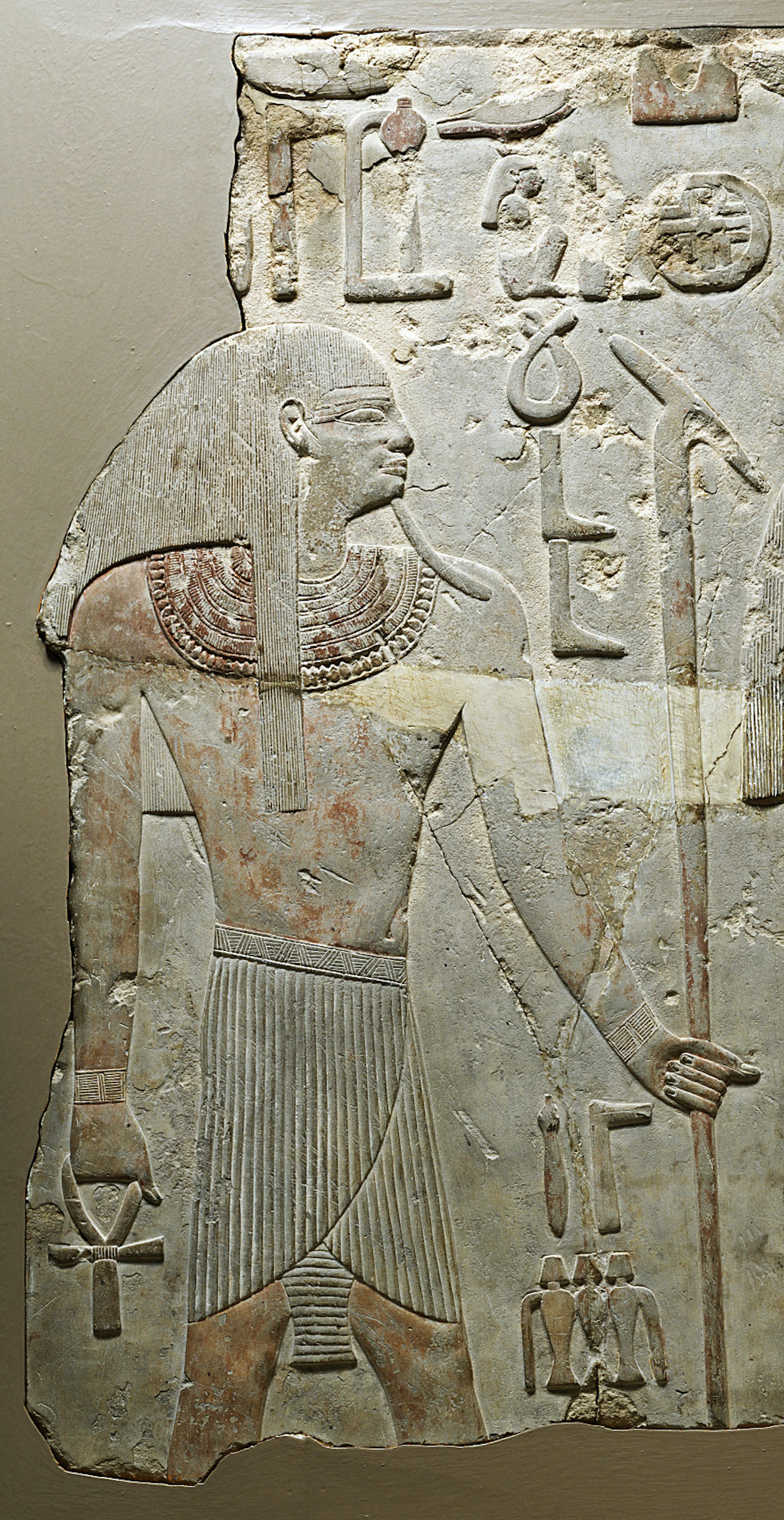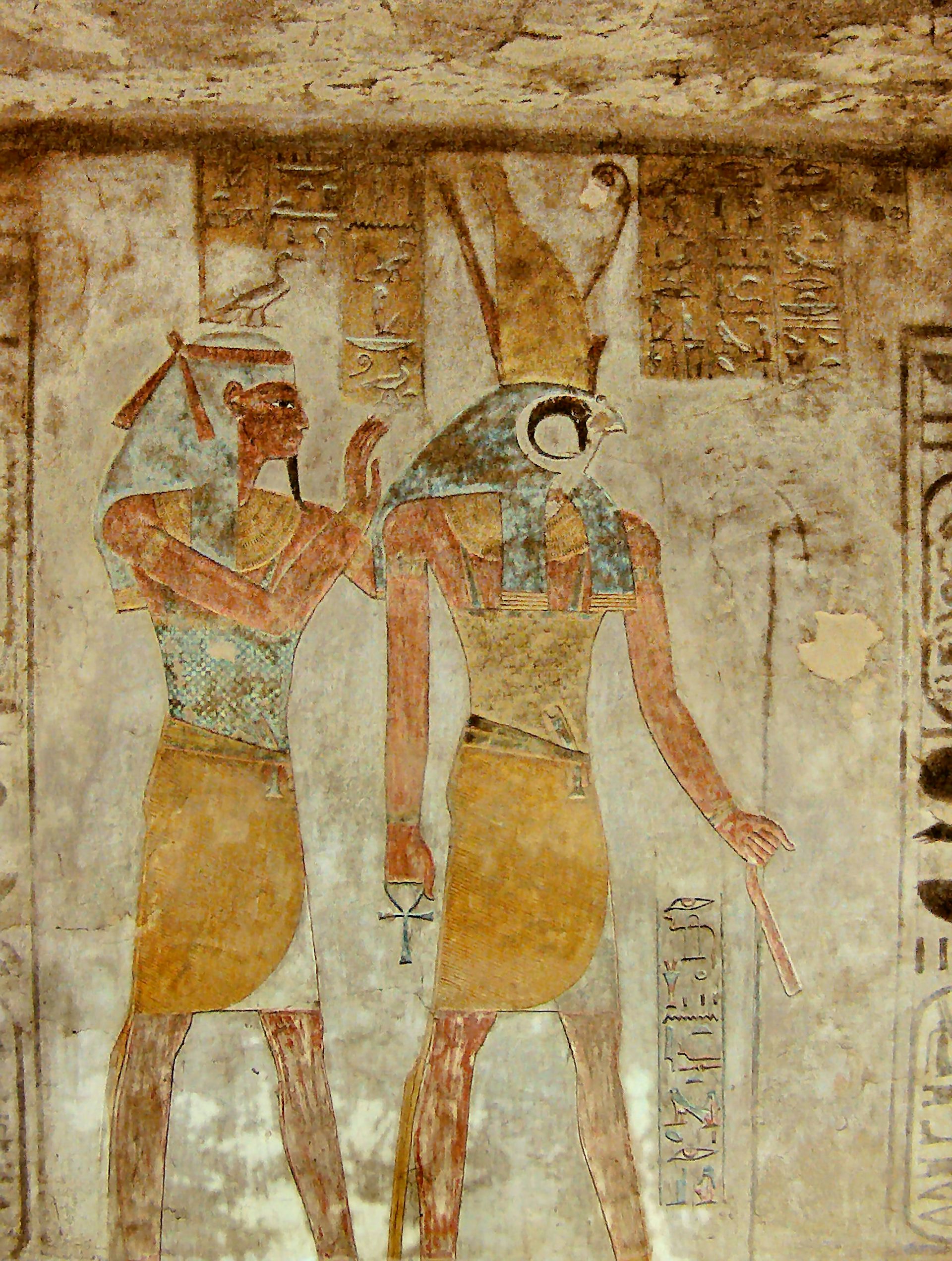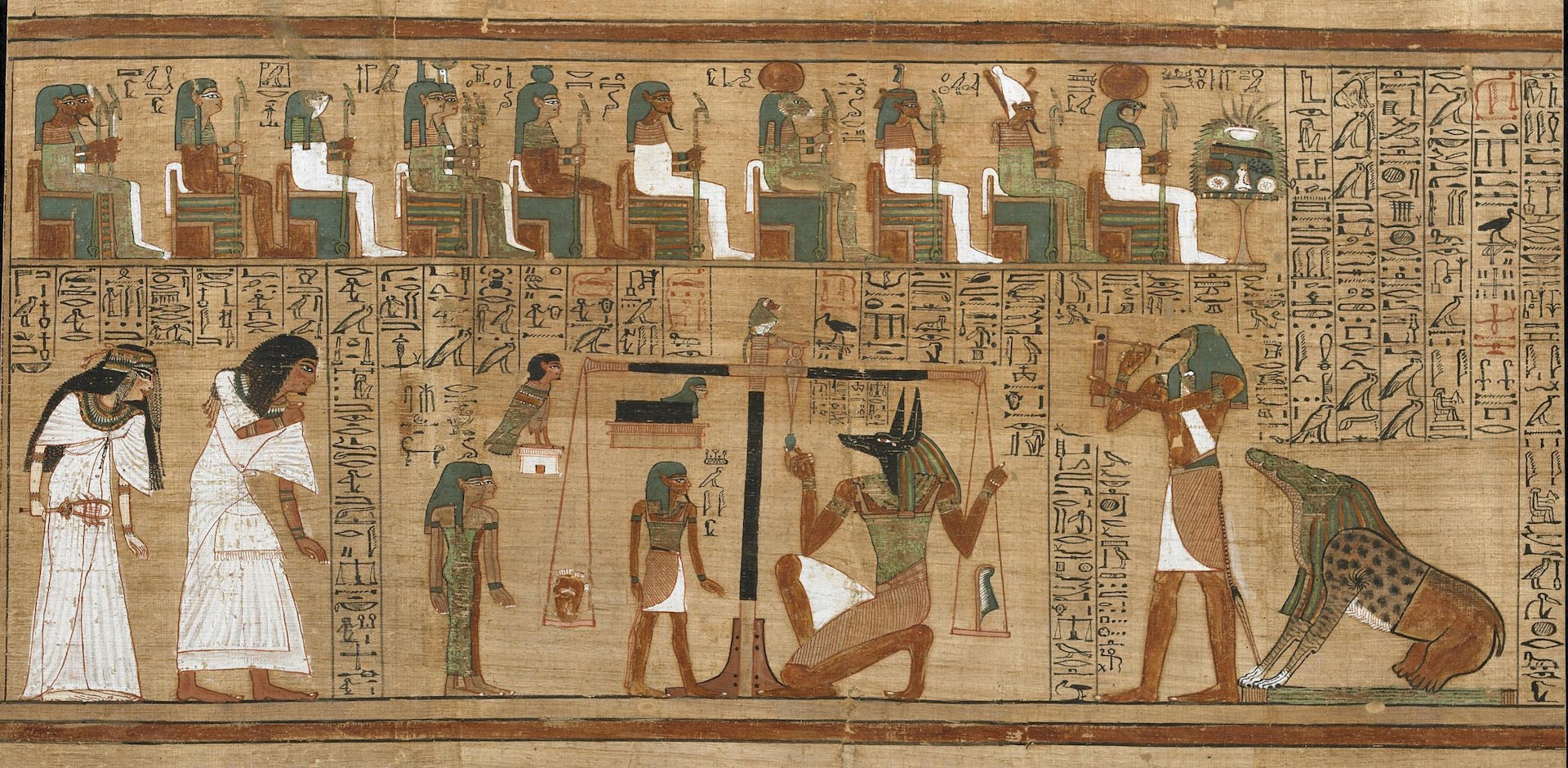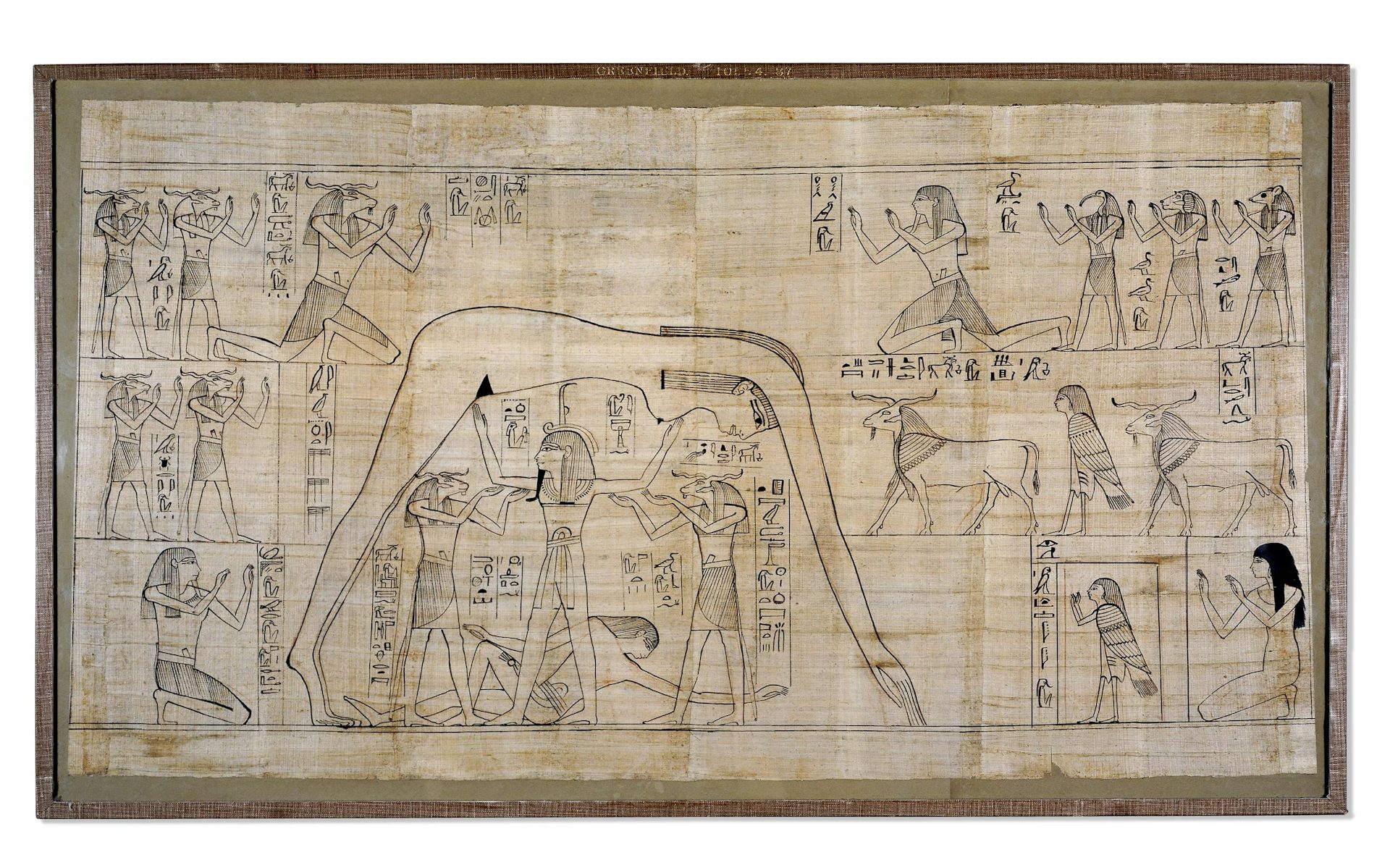Geb
Overview
An important member of the Egyptian pantheon, Geb was an earth god who held sway over snakes, earthquakes, and the underworld. As the third king of Egypt (following Ra and Shu), Geb was closely tied to kingship and royal power.

In this relief fragment (c. 2145-2025 BCE) Geb can be seen holding a scepter and ankh.
The Walters Art MuseumCC0Etymology
While the meaning of Geb’s name has been lost to time, its spelling and pronunciation have been the subject of considerable debate. The famous Egyptologist Sir E.A. Wallis Budge referred to the deity as Seb, while his peer Heinrich Karl Brugsch favored Geb or Keb.[1]
“Geb” is used almost universally today, though older sources may still refer to him as Seb.
Attributes
Geb was usually portrayed as a human with green skin representing his status as a fertility god. His body was sometimes adorned with plants, or their corresponding hieroglyphs. He was often depicted in a reclined position beneath his wife, the sky goddess Nut, with his phallus pointing in her direction.
When standing, Geb usually wore the Red Crown of Lower Egypt or a goose hieroglyph atop his head; the latter represented his name.[2]

A relief of Geb and Horus from tomb KV14 in the Valley of the Kings. Geb is easily identified by the goose glyph atop his head.
kairoinfo4uCC BY-SA 2.0As an earth god, Geb was associated with earthquakes, fresh water, and the underworld.[3] Several myths have suggested that Geb also had control over snakes due to their dwelling within the earth. In addition to his control over natural elements, Geb was held in high regard for his healing powers, particularly in relation to scorpion stings.[4]
Geb was closely linked to kingship. Pharaohs were sometimes referred to as “heirs of Geb,” and the Egyptian throne was nicknamed “the seat of Geb.”[5]
Family
Geb was part of the third generation of Egyptian gods. His parents, Shu and Tefnut, were the offspring of Ra.
As was common amongst the Egyptian gods, Geb married his sister, Nut. Together they had Osiris, Horus the Elder, Set, Isis, and Nephthys.[6]
Family Tree
Mythology
Myths relating to Geb mostly dealt with his tenure as prince and later king of Egypt—although as a chthonic god, he was also involved with matters of the afterlife.

In this image from the Book of the Dead of Ani (c. 1300 BCE), Geb participates in the weighing of the heart ceremony. In this ritual, the deceased were judged to determine if they were worthy of entering the afterlife. Geb is seated in the top row above the ceremony.
The Trustees of the British MuseumCC BY-NC-SA 4.0Origin Myth
When Geb and Nut were born, they held each other so tightly that Nut could not give birth. Eventually, their father Shu forced them apart to allow the next generation of gods to be born. This myth explained how the earth and sky became separated.[8]

This scene from the Greenfield Papyrus depicts Geb lounging below his wife Nut, who is being held aloft by their father Shu.
The Trustees of the British MuseumCC BY-NC-SA 4.0Geb the Unruly Prince
Geb was an unruly prince at best and a downright seditious one at worst. On one occasion, he transformed himself into a boar and ate the Eye of Ra, then proceeded to deny it when his father confronted him on the matter. His denials were unconvincing, however, as the eye was bleeding through his skin. [9]
The Eye of Ra was a solar disk who served as Ra’s feminine counterpart. A protector of kings, she could destroy enemies with her powerful gaze.[10]
Finally, in a myth only found only after the 30th Dynasty, (c. 400 BCE) Geb rebelled against his father, seized the throne, and forced his mother Tefnut to be his queen.[11] This tale seems to have been derived from Greek mythology, where Cronus (Geb’s Greek equivalent) rebelled against his father Uranus.[12]
Geb as King
Geb’s path to kingship opened when his father, Shu, abdicated the throne. After winning a major battle against the forces of Apophis, Shu returned to find his palace overrun by rebels. Fearing for his life, he fled to the sky, leaving earth—and his throne—behind.
Now the de facto king, Geb formally took his father’s throne following a monumental storm that kept everyone locked in the palace for nine days.
In an attempt to legitimize his rule, Geb made inquiries into the accomplishments of Shu and Ra. Upon hearing tell of a living uraeus (a rearing cobra) that once served as Shu’s headdress, Geb resolved to claim it for himself. The creature was sealed away in a hidden chest, but such obstacles did not hinder Geb for long; his followers soon recovered the priceless treasure and brought it before the king.
When they went to open the chest, however, the uraeus burst out and began breathing fire at the group. Geb’s followers were incinerated, and Geb himself was badly burned. Only through the magical wig of Ra was Geb able to heal his injuries.[13]
Geb’s future endeavors were considerably more successful. In retaking ancestral lands that had fallen to the forces of Apophis, he saved millions of settlements and restored Egypt to its former glory.[14]
For reasons that remain unclear, Geb abdicated the throne to make way for Osiris, his first-born son.